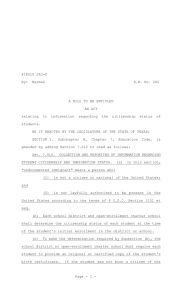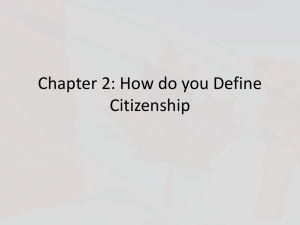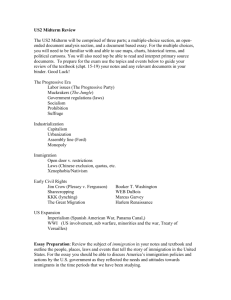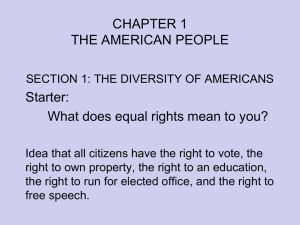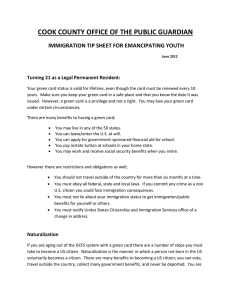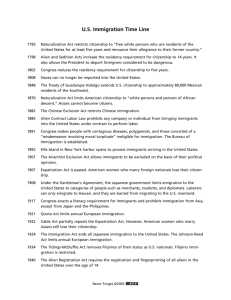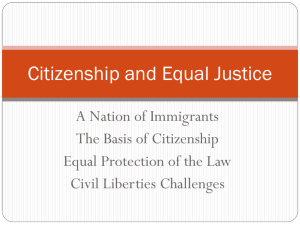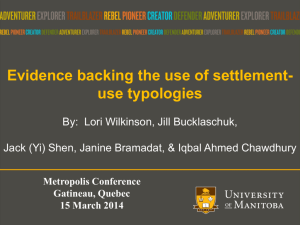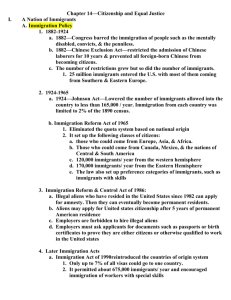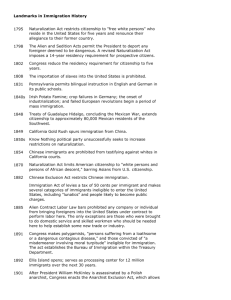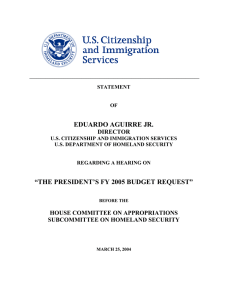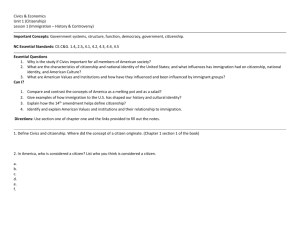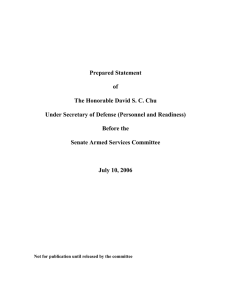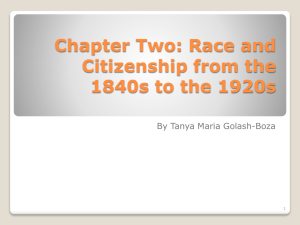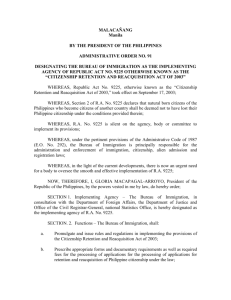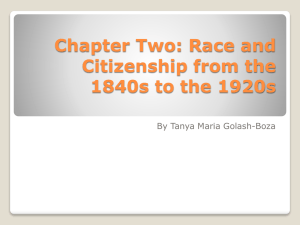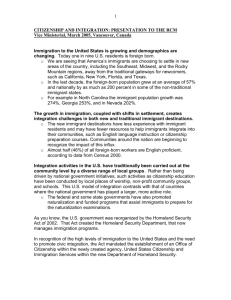Formal Essay #2: Argumentative Essay on Immigration
advertisement
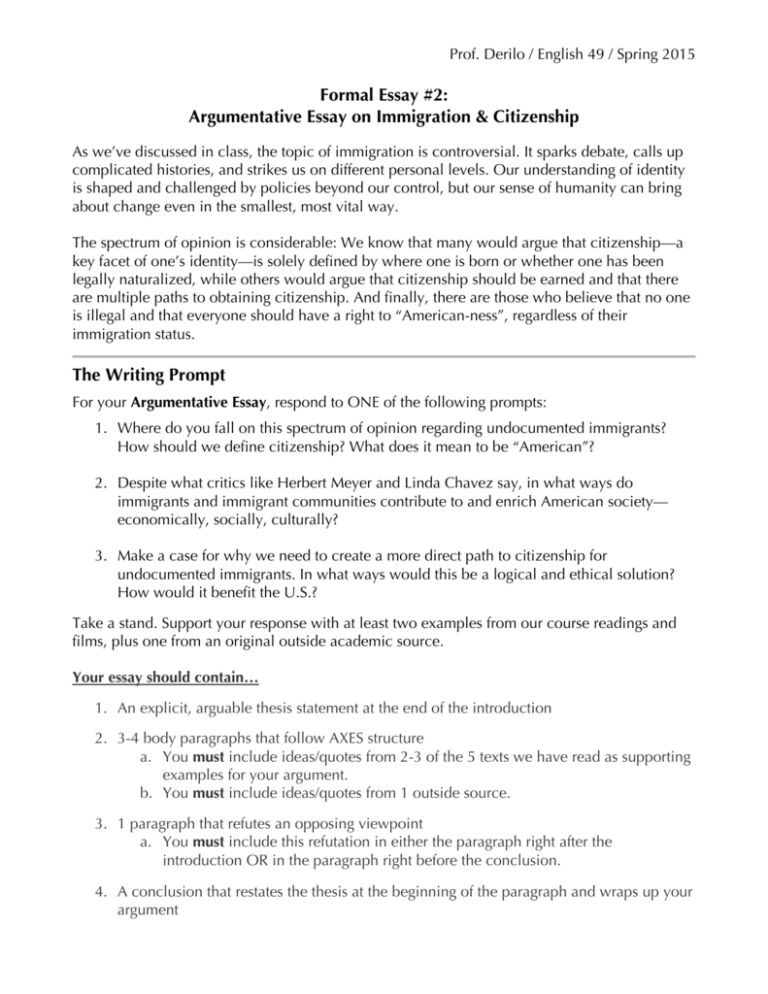
Prof. Derilo / English 49 / Spring 2015 Formal Essay #2: Argumentative Essay on Immigration & Citizenship As we’ve discussed in class, the topic of immigration is controversial. It sparks debate, calls up complicated histories, and strikes us on different personal levels. Our understanding of identity is shaped and challenged by policies beyond our control, but our sense of humanity can bring about change even in the smallest, most vital way. The spectrum of opinion is considerable: We know that many would argue that citizenship—a key facet of one’s identity—is solely defined by where one is born or whether one has been legally naturalized, while others would argue that citizenship should be earned and that there are multiple paths to obtaining citizenship. And finally, there are those who believe that no one is illegal and that everyone should have a right to “American-ness”, regardless of their immigration status. The Writing Prompt For your Argumentative Essay, respond to ONE of the following prompts: 1. Where do you fall on this spectrum of opinion regarding undocumented immigrants? How should we define citizenship? What does it mean to be “American”? 2. Despite what critics like Herbert Meyer and Linda Chavez say, in what ways do immigrants and immigrant communities contribute to and enrich American society— economically, socially, culturally? 3. Make a case for why we need to create a more direct path to citizenship for undocumented immigrants. In what ways would this be a logical and ethical solution? How would it benefit the U.S.? Take a stand. Support your response with at least two examples from our course readings and films, plus one from an original outside academic source. Your essay should contain… 1. An explicit, arguable thesis statement at the end of the introduction 2. 3-4 body paragraphs that follow AXES structure a. You must include ideas/quotes from 2-3 of the 5 texts we have read as supporting examples for your argument. b. You must include ideas/quotes from 1 outside source. 3. 1 paragraph that refutes an opposing viewpoint a. You must include this refutation in either the paragraph right after the introduction OR in the paragraph right before the conclusion. 4. A conclusion that restates the thesis at the beginning of the paragraph and wraps up your argument Prof. Derilo / English 49 / Spring 2015 Getting Started As part of your prewriting/invention process, go back to the texts (films we watched and the essays we read). Consider writing a summary of each to help focus your thinking. (You may end up using some of these in the paper.) Decide which claims you find most convincing and why. You don’t have to be in total agreement with a text’s position. In fact, you might build your own position by mixing ideas from a couple different texts. Formulate your position as a working thesis statement. Determine the 3-4 supporting assertions to defend your position, as well the opposing viewpoint you will refute. Select the passages you think you will use as your examples. Remember to cite these passages in your paper! Readings for References • 30 Days episode on immigration by Morgan Spurlock (tinyurl.com/spurlock30days) • Documented by Jose Antonio Vargas • “American Dreams, Foreign Flags” by Linda Chavez • “Why Americans Hate This ‘Immigration Debate’” by Herbert Meyer • White House blog (tinyurl.com/prezaction and tinyurl.com/prezblog) • At least one outside source of your choice Formal Requirements 1000-1200 words or 4-5 FULL pages (typed, double-spaced, AND stapled!) 12-point font, Calibri, Cambria, or Times New Roman MLA Format with a Works Cited page Important Dates 1st Draft (complete rough draft): Due: March 23/25 (conference) – Bring 1 copy 2nd Draft (complete revised draft) Due: Monday, April 13 – Bring 2 copies 3rd Draft (complete final draft) Due: Wednesday, April 15 – Bring Final Draft + Drafts w/ Peer Comments + Rubric (all stapled or paperclipped!)

